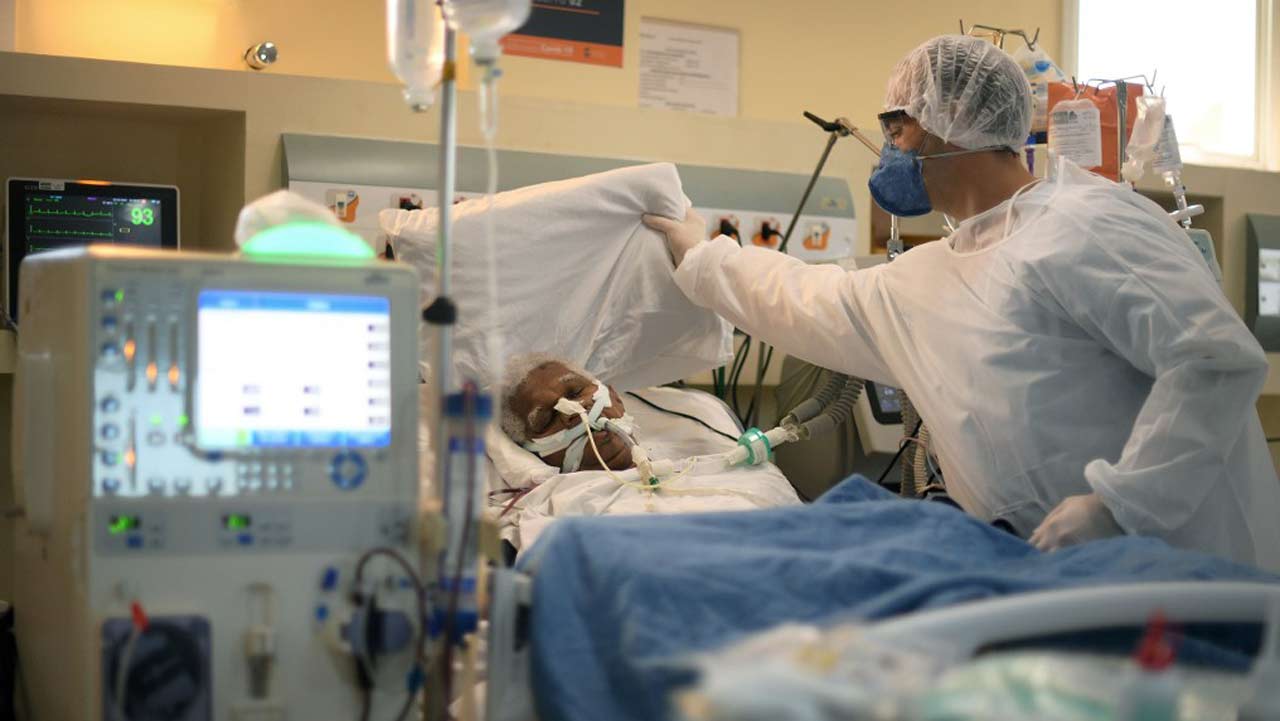All of a sudden, there is a rebirth of the Ebola scare following the death in Lagos of a Liberian, Patrick Sawyer, who arrived Nigeria on July 20, 2014 via the Murtala Mohammed International Airport.
His blood sample was taken to the advance laboratory at the Lagos University Teaching Hospital, which confirmed the diagnosis of the Ebola virus disease. Following his death, his blood samples have also been sent to a laboratory in Darkar, Senegal, for some more confirmatory detailed tests to double check.
Since July 22 when his death was announced, the majority of Nigerians that I have been interacting with have expressed different interesting opinions and views. They believe that the Nigerian government should have acted much earlier.
Ebola has been ravaging countries in West Africa for a while now, yet, no concrete measures had been put in place earlier before the Sawyer incident in order to prevent its spread into the country.
Some individuals are of the opinion that the case of Patrick Sawyer was found by chance and not necessarily by preparedness. They believe that if the man had not been sick on arrival in Lagos, he could have gone to Calabar, which was his final destination. If he had fallen sick in Calabar, there is a very slim probability that the exact cause of his illness would have been detected.
Following the first suspected case of Ebola virus in Nigeria, which was made public on July 22, the Federal Government announced its resolve to collaborate with foreign airlines flying into Nigeria on measures to prevent the spread of the virus.
According to the Federal Airport Agency of Nigeria, the rising cases of Ebola in West Africa have become a source of concern to the authority and to this end, international airports have been placed on red alert.
Now, the question is, what about the land borders? There are tens of transport companies shuttling the Lagos-Cotonou-Lome-Accra routes. How would these passengers be checked to ensure they are not carriers of the dreadful disease? Even if the 40-year-old Liberian man is dead, what is the government doing about the person(s) that sat next to him en route to Nigeria, or the immigration officers he passed through at the airport?
In my own opinion, I think the Nigerian government should have intensified efforts much earlier than this. The government should be more proactive towards the plight of her people.
In addition to this, the ministry of health needs to track and analyse risk and vulnerability of this disease, and integrate findings into humanitarian and development programmes. The ministry also needs to work closely with other health agencies such as the Nigerian Centre for Disease Control, West African Health Organisation, and the World Health Organisation.
The tempo should be increased in monitoring the outbreak trend, enhance surveillance to detect and treat the disease if cases come up, then sensitise and educate Nigerians to how to identify suspected cases and possible preventive measures.
More quarantine centres should be established, and all state commissioners of health should be on red alert, especially in states that share borders with neighbouring countries. All land borders and airports should have professionals who will be on ground to examine suspected cases or persons who are coming into the country, especially from areas where outbreaks have occurred within the last 60 days.
Individuals with high fever, headache, severe abdominal pain, diarrhoea and bleeding should report to health authorities, especially individuals who had recently travelled to New Guinea, Sierra Leone or Liberia.
Travellers should be careful about contact with animals abroad, especially monkeys, apes, chimpanzees, gorillas, fruit bats, forest antelopes and porcupines.
In conclusion, I urge health care personnel across the country to employ the use of aseptic techniques when preparing and administering medications. These techniques include the following:
– Cleansing the access diaphragms of medication vials with 70 per cent alcohol before inserting a device into the vial
– Never administer medications from the same syringe to multiple patients, even if the needle is changed or the injection is administered through an intervening length of intravenous tubing.
– Do not reuse a syringe to enter a medication vial or solution.
– Do not administer medications from single-dose or single-use vials, ampoules or bags or bottles of intravenous solution to more than one patient.
– Do not use fluid infusion or administration sets (e.g. intravenous tubing) for more than one patient.
– Dispose of used syringes and needles at the point of use in a container that is closable, puncture-resistant and leak-proof.
– Wear gloves for potential contact with blood, body fluids, mucous membranes, non-intact skin or contaminated equipment
– Do not wear the same pair of gloves for the care of more than one patient
– Perform hand hygiene immediately after removing gloves.
– Wear mouth, nose and eye protection during procedures that are likely to generate splashes or sprays of blood or other body fluids
The first case of Ebola in Nigeria may have been reported; however, if the measures above are strictly adhered to, the disease will be contained in a very short time.
ABUJA: Training Schedule for Basic Life Support BLS, Pediatric Advanced Life Support (PALS), Advanced Cardiovascular Life Support ACLS, First Aid, CPR, AED
PORTHARCOURT: Training Schedule for Basic Life Support BLS, Pediatric Advanced Life Support (PALS), Advanced Cardiovascular Life Support ACLS, First Aid, CPR, AED
LAGOS: Training Schedule for Basic Life Support BLS, Pediatric Advanced Life Support (PALS), Advanced Cardiovascular Life Support ACLS, First Aid, CPR, AED




